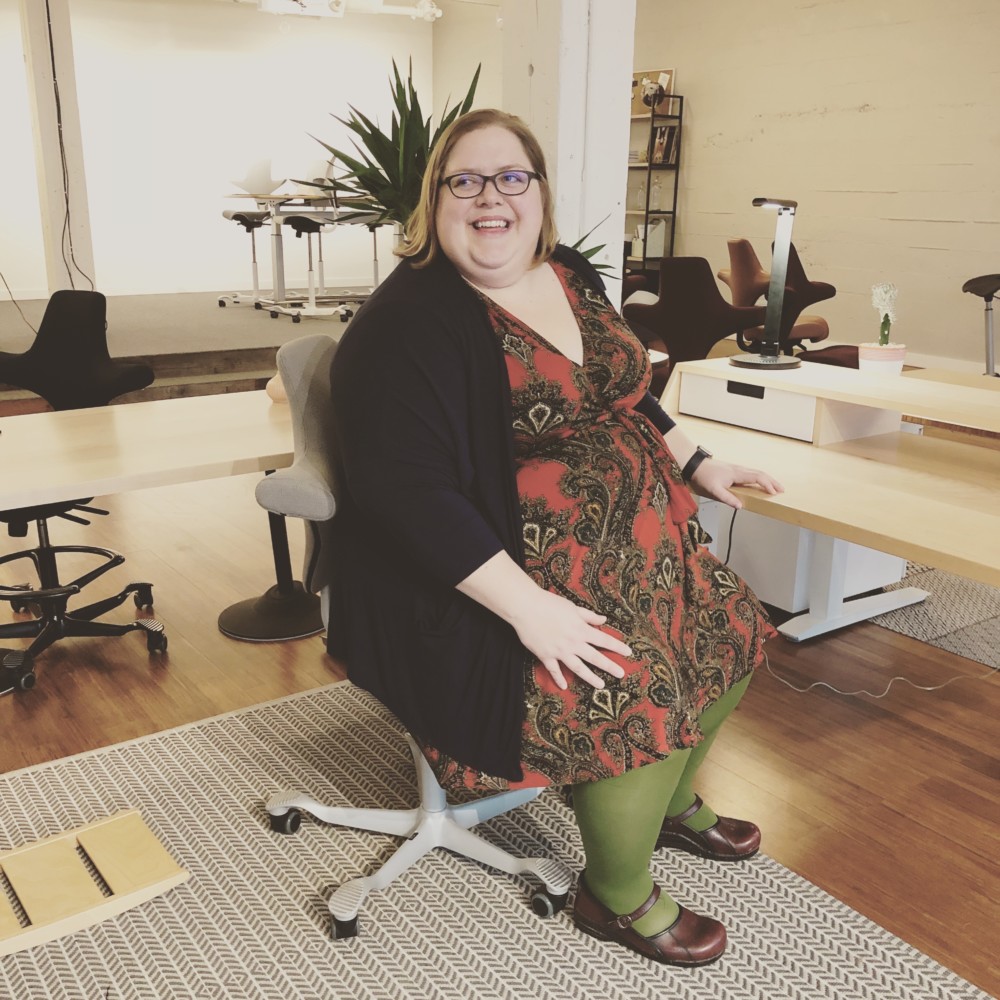By Samantha Swindler
The Oregonian, Portland, Ore.
WWR Article Summary (tl;dr) Portlander Rebecca Alexander has raised more than $50,000 to launch “AllGo”, an online review platform where users can rate public spaces on their accessibility and comfort for plus-sized people.
The Oregonian, Portland, Ore.
On the difficulty of navigating the world in a large body, author Roxane Gay writes, “The bigger you are, the smaller your world becomes.”
The phrase stuck with Portlander Rebecca Alexander as she worried about her own world shrinking.
“It’s an anxiety-producing experience, when you’re in a large body, to go to a place you’ve never been before,” she said.
In response, Alexander has raised more than $50,000 to launch AllGo, an online review platform where users can rate public spaces on their accessibility and comfort for plus-sized people.
AllGo will be like Yelp — but instead of photos of food, users will see images and ratings of booth spaces, chairs and aisle width. It’s set to launch in Portland this summer, focusing on reviews of bars, restaurants, theaters and offices.
Alexander, 30, grew up near Medford and graduated from Willamette University. She spent the last five years working in fundraising for nonprofits Bradley Angle and the YWCA of Greater Portland.
“When I was going out on donor meetings and wanting to be impressive and to put my organization in the best light, I really noticed the anxiety I experienced around going to places I’d never been before,” she said. “I didn’t want my first interaction with this donor I’m trying to impress to call attention to the fact that I’m a fat person and I can’t fit in that booth.”
She’d arrive to meetings 20 minutes early to scope out seating. It’s a fear she traces back to a high school class trip to a Six Flags amusement park, where she couldn’t fit on all the rides.
“After waiting in line for 20 minutes … am I going to have to walk the walk of shame past all of them after the seat belt doesn’t close?” Alexander said. “That was the most memorable part of that day for me.”
Alexander realized she wasn’t alone in her fears. Last year, she sent surveys about plus-sized accessibility to her email contacts and over social media. The responses were sometimes heartbreaking.
“I don’t feel comfortable going out anymore.”
“I don’t go out to new places anymore.”
“I don’t feel I can exist in this space.”
The most basic solution to all this was access to information.
Alexander connected with Michele Amar, a fellow Portlander, who has experience in technology design, and together they cofounded AllGo last year.
“It wasn’t a terribly difficult solution to come up with,” Amar said. “We can do something about the not knowing. It seemed like a solvable challenge and one that would have an impact on people’s lives.”
Alexander’s background in nonprofits made her well-suited to scrappy, small-budget entrepreneurial work. A friend suggested the name AllGo, and her payment was a homemade key lime pie. The company mascot is another friend’s orange tabby cat, sitting precariously on a far too small box.
Within 19 days, AllGo’s Kickstarter raised more than $55,000 from some 1,100 backers. The campaign received contributions and endorsements from known names in the body positivity movement, including plus-sized model Tess Holliday and authors Roxane Gay and Samantha Irby.
AllGo isn’t about shaming restaurants or forcing costly changes, Alexander said. But she does hope it will spark an interest in measures businesses can take toward size inclusivity.
“I want this review platform to be a tool for (business owners) as much as it is for fat people to learn the needs of part of their customer base,” Alexander said.
AllGo’s co-founders were part of a recent panel for Design Week Portland called “The Fattest Gap in Design,” which looked at large-body design needs around clothing, home goods, furniture and cars.
Alexander noted that more than a third of American adults are considered obese.
“I don’t believe that any restaurant owner is saying to themselves, ‘Oh, let me bolt this table and this booth to the floor so a third of my customers can’t eat here,’ ” she said. “I want to know how I can help them and what information would be helpful to them to make decisions around their space.”
I met Alexander at Albina Press Coffeehouse in North Portland, one of her regular meeting spots. We sat outside at a picnic table before heading inside, where she pointed out the sturdy chairs and wide aisles that make the space accommodating to large bodies.
“I’ve never really thought about it in that sense,” said the coffee shop’s owner, Kevin Fuller. “But if I ever had a situation where someone came in and found themselves uncomfortable, they thought if they sat in something it would break or there wasn’t enough room for them to move around the space, it would make me feel really uncomfortable with the way that things are set up.”
AllGo will help businesses rethink the needs of larger customers, but its biggest strength will be providing tools to plus-sized people worried about visiting new places.
Other communities can benefit from this concept as well: How accommodating is a space for people with disabilities, or for parents with young children?
With so much information now available in our hands, the digital world should make the real world easier to navigate for everyone.
For more on AllGo, or to sign up for the beta version when it’s released, visit canweallgo.com.














































































































































































































































































































































































